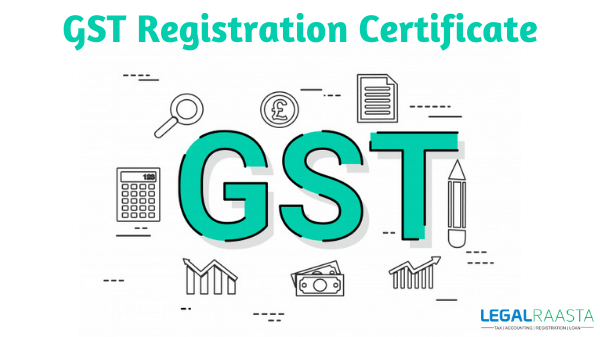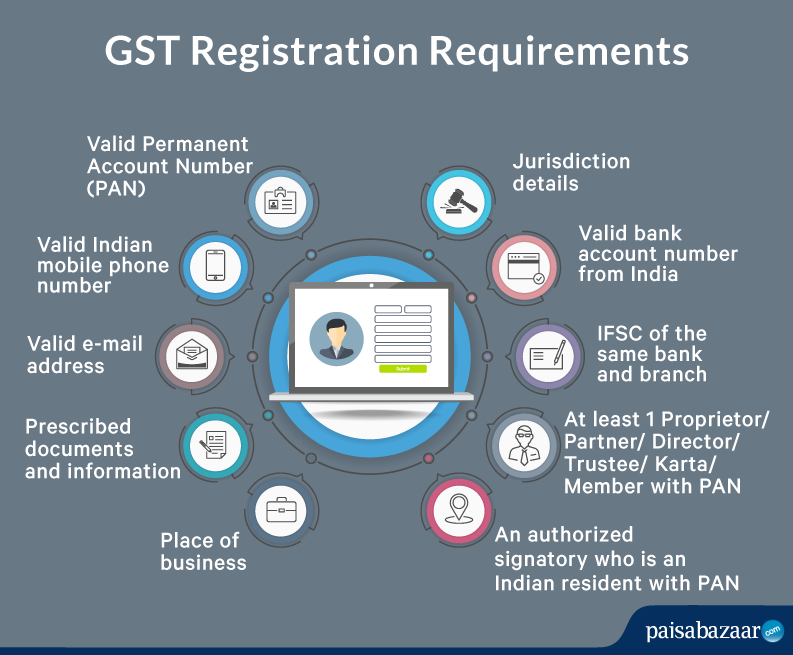Contrast and Choose the most effective GST Registration Services in Singapore for Your Demands
Wiki Article
From Beginning To End: The Ultimate Roadmap to GST Enrollment for Companies Looking For Financial Stability
Navigating the complexities of Goods and Provider Tax Obligation (GST) enrollment is an essential action for organizations making every effort for financial stability. Damaging down the roadmap into manageable steps can simplify the registration journey for services looking to improve their economic standing.Comprehending GST Essentials
Diving into the essential principles of Item and Services Tax (GST) is important for acquiring a detailed understanding of its ramifications on organizations and the economic situation. Input Tax Credit History (ITC) is a significant feature of GST, permitting businesses to declare credit for taxes paid on inputs, lowering the overall tax concern. Understanding the fundamentals of GST is crucial for companies to abide with tax obligation laws, manage their funds efficiently, and add to the nation's financial growth by participating in a transparent tax obligation system.Eligibility Requirements for Registration
As of the present laws, the threshold restriction for GST registration is a yearly accumulation turn over of 40 lakhs for services operating within a state, except for unique classification states where the restriction is 20 lakhs. In addition, specific services are required to sign up for GST irrespective of their turnover, such as interstate distributors, laid-back taxable individuals, and businesses accountable to pay tax obligation under the reverse cost device. It is critical for services to extensively evaluate their turn over and transaction types to establish their GST enrollment obligations precisely.Files Required for Enrollment
Having actually fulfilled the qualification requirements for GST enrollment, services should currently guarantee they have the requisite papers in position to wage the registration procedure successfully. The papers needed for GST registration generally include evidence of service constitution, such as collaboration deed, registration certificate, or unification certificate for different kinds of companies. Furthermore, organizations need to give records establishing the primary business, such as a rental arrangement or electricity costs. PAN card of the service, in addition to the identification and address proof of promoters/partners/directors, are important for confirmation functions. Checking account statements, in addition to canceled cheques or a duplicate of the financial institution passbook, are needed to verify the economic information given during registration. Businesses have to have digital signatures all set for the accredited signatory. Making sure all these records are organized and readily offered will quicken the GST enrollment process, allowing businesses to abide by tax obligation regulations seamlessly.Step-by-Step Registration Refine
Commencing the GST registration process entails a collection of organized steps to guarantee a smooth and compliant enrollment for companies. The first step is to check out the GST site and fill in the enrollment type with accurate information of business entity. Following this, the applicant receives a Temporary Reference Number (TRN) which is utilized to return to the application procedure if it's not finished in one go.Next, all required documents based on the checklist offered by the GST portal need to be submitted. These papers commonly include proof of organization address, registration and identification proofs of promoters, financial statements, and business entity's PAN card.

Post-Registration Conformity Standards

Conclusion
In verdict, services looking for economic security must recognize the essentials of GST, meet eligibility requirements, gather necessary files, follow the step-by-step enrollment procedure, and abide by post-registration guidelines - Best GST registration services in Singapore. By adhering to these actions, organizations can ensure compliance with tax obligation guidelines and keep monetary stability in the futureAdditionally, certain organizations are needed to register for GST irrespective of their turn over, such as interstate suppliers, informal taxed individuals, and services responsible to pay tax obligation under the reverse cost system.Having actually fulfilled the qualification standards for GST registration, services need to currently guarantee they have the requisite records in place to continue with the enrollment procedure successfully. The documents needed for GST enrollment normally include evidence of organization constitution, such as collaboration deed, enrollment certificate, or unification certification for different types of companies. Additionally, companies need to offer documents developing the primary area of organization, such as a rental agreement or electricity bill.Beginning the GST enrollment Web Site process includes a collection try this of organized actions to guarantee a certified and seamless enrollment for companies.
Report this wiki page